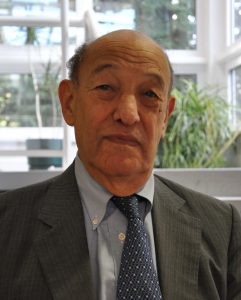Memo #123
(The final Memo from the Theme, Ezra Vogel’s Deng Xiaoping and the Transformation of China)
Featuring Ezra Vogel
 Last week we published the second part of our interview with Ezra Vogel in which he discussed Deng Xiaoping and Chinese domestic politics in his book, Deng Xiaoping and the Transformation of China.
Last week we published the second part of our interview with Ezra Vogel in which he discussed Deng Xiaoping and Chinese domestic politics in his book, Deng Xiaoping and the Transformation of China.
In this final instalment of our interview with Ezra Vogel, he turns first to the legacy of Deng Xiaoping. While Deng’s role in the suppression of popular protest at Tiananmen Square in 1989 will never be forgotten, the longer view will dwell on Deng as the man who changed China and steered the transformation that formed the China we see today. Professor Vogel then turns to Deng’s role in international relations, beginning with the predominant relationship with the US but also noting Canada’s special role in the 1970s and enduring relationship. Finally, Professor Vogel reflects on how he came to write this biography, and much of his public work, in a style that combines scholarship and accessibility.
Here’s the final part in a series of three interviews with Ezra Vogel:
Part 1 – How is history going to judge Deng Xiaoping?
Part 2 – How will this book help US-China relations?
Part 3 – Deng Xiaoping’s Canadian connection
Part 4 – How you’ve learned to communicate scholarly knowledge to a broader audience?
About the Author:
Ezra Vogel – Henry Ford II Research Professor of the Social Sciences, Emeritus. Harvard University.
Links:
- Deng Xiaoping and the Transformation of China, Book by Ezra Vogel, September 2011.
Related Memos:
- Comparing Tahrir Square Demonstrations of 2011 and Tiananmen Protests of 1989 by Earl Drake (Memo #59, Part 1)